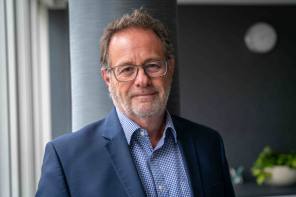

BMO Global Asset Management made its name in the UK market by buying F&C Asset Management in 2014.
But despite Brexit, according to Rob Thorpe, head of distribution, UK intermediary, London remains the global headquarters for the business – an offshoot of Bank of Montreal – and Amsterdam will be its European headquarters. It is 45 minutes away by plane from London and is well set up for the task.
However, Mr Thorpe does not anticipate an effectual shut down of the City post-Brexit, given that, as things currently stand, we will not be in the single market and there will not be passporting.
He said: “There will be some moves inevitably, but the thing about London, it comes with a lot of capability and knowledge and experience, and I don’t think a lot of that is going to be transferred to Europe.
“Where are these people going to live? Where is the infrastructure going to be?
“We’re [BMO GAM] in a fortunate position of having businesses in different part of Europe already.”
BMO GAM has a range of investment products, including investment trusts, exchange-traded funds (ETFs), multi-asset funds and fixed income.
It has been acutely aware of advisers’ and other intermediaries’ needs, through whom many of its products are distributed – and the chief complaint is cost.
Mr Thorpe said: “When we were speaking to advisers they were using passive portfolios only because they couldn’t have access to active at a similar price. Advisers [are dealing with] circumstances where cost is a constraint, it could be DB transfers, for example.”
In response to this, it launched a multi-asset range in November last year – BMO Universal Multi-Asset Portfolios – with an ongoing charges figure of 29 basis points, comparable to a tracker, but with input from its fund managers. It comes in three varieties: cautious, balanced and growth.
Mr Thorpe said: “It’s replicating what the managers are already doing – it’s not additional work.
“Our multi-asset team manage the asset allocation and risk management of the portfolio, and we have the experience of Paul Niven to determine the asset allocoation.
“It’s in-house capability that we’re using, and we’re not double charging for that and that explains why we can offer a low cost.”
Of less anticipated appeal to advisers is another part of BMO GAM – ETFs. BMO is big in ETFs in Canada – North America has embraced them much more than Europe. Mr Thorpe said 60 per cent of the ETF flows in Canada go into BMO, so “we know the market”.
But British advisers will not recommend ETFs. He said: “Most advisers, when they make a recommendation for a fund, they do it for the medium term and intraday trading [of ETFs] is of no real benefit to an adviser.
“The second thing is that the majority of adviser business is placed on a platform and the platform industry has been very slow to make ETFs available. We’re starting to see that change, but the major platforms in the UK started from a fund supermarket, they’re not set up from stock trading.”
The industry has gone through a similar process with investment trusts, with technological constraints holding back the adoption of these stocks, but this too is starting to change. But whereas clients and advisers may be slow to pick up on ETFs, they have embraced passives. This is not necessarily because of a firm belief in passive investing itself, Mr Thorpe said.
“We’ve seen a lot of growth for passives because advisers have no choice.
“There’s a lot of mediocrity in active fund management and a lot of managers have failed to deliver a lot of alpha.”
Certainly active investing has a future, he said, but “what active managers have to do is demonstrate the value that they’re creating from being an active manager – showing they are delivering on their objectives.
“If you start to see volatility in the marketplace you will start to see that come to the fore because active management shows its worth in volatile markets.
“But if you’re not demonstrating that [you deliver on objectives] then you’re going to find little support.”
Later in the year, as part of BMO’s plans to develop its strategy, the F&C name will disappear almost completely – apart from the original F&C investment trust. The reason for this, said Mr Thorpe, is that the company is becoming a global brand and it wanted to be clear to investors who it was.
Advisers are a key part of that strategy, and Mr Thorpe, in various distribution roles in financial services, has plenty of experience.
“They are the lifeblood of our business and I would like to see the industry work hard at encouraging more graduates and school leavers to seriously consider the advice market as a career plan. With so much change in terms of pension regulations and low interest rates, the need for financial advice has never been greater.”
Mr Thorpe added: “There’s been a lot of focus on low cost provision but how do you know you need advice?”
Melanie Tringham is deputy features editor of Financial Adviser and FTAdviser.com



